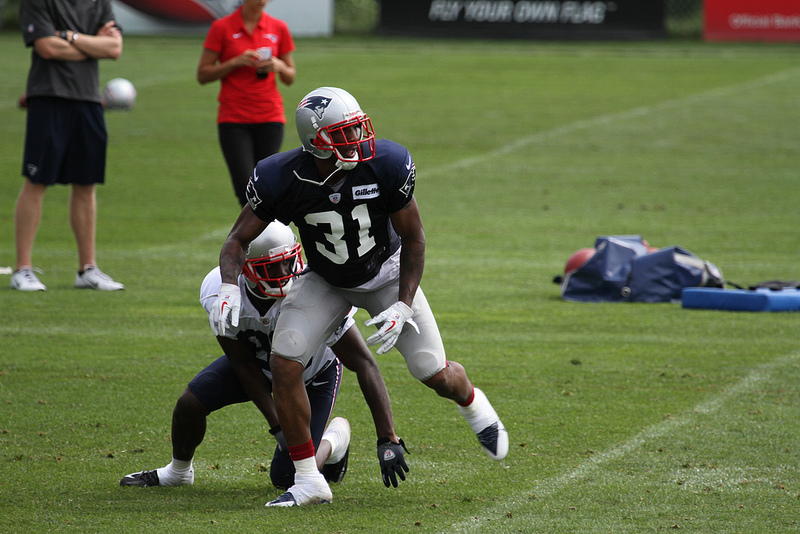Aqib Talib’s Checkered Histo—Wait, What a Great Training Camp

Photo by Fred Hosley / Flickr
When the Patriots traded for stud cornerback Aqib Talib last year, they knew they were getting a guy with baggage. With an assist from the Tampa Bay Times, here are some issues from Talib’s past:
- May 2009: Used his helmet as a weapon in a fight with a teammate.
- August 2009: Arrested for assaulting a St. Petersburg, Florida, taxi driver and charged with simple battery and resisting arrest.
- March 2011: Charged with aggravated assault with a deadly weapon for allegedly firing off shots during an argument with his sister’s boyfriend. The charges were later dropped, on account of the prosecution witness lacking credibility.
Then there was also the fight he got into with a fellow player at the NFL’s 2008 rookie symposium and his suspension last October for performance enhancing drugs. To be fair, since arriving in town, Talib has not had any missteps. And he’s been a beast on the field—the Patriots happily handed over $5 million to him in a one-year extension signed last March (though the team was likely wary of giving someone with his track record a long-term deal). He’s impressed big time this preseason, with teammates raving about his work ethic and commitment to the team. He even won one of the Patriots’ much ballyhooed off-season training awards, earning him a coveted parking space close to the workout facility.
This all has led, you guessed it, to people praising Talib’s character. Today, the Herald has a fairly glowing profile. Reporter Jeff Howe writes:
Even though it was the first offseason award Talib has ever received, he began to develop a reputation as a leader last summer with the Buccaneers. His Pats teammates will back him up on that, too, as they haven’t seen any signs of the negative reputation Talib garnered in his first couple of seasons in the league.
“For him, people will find whatever judgment they want,” safety Devin McCourty said. “They can look at a lot of things that occurred in his career and take them for that, but I love it because I’ve had the opportunity to watch him. He came in every day and worked his butt off, and he deserved that parking spot. I think it speaks volumes for our younger guys to watch him out there practicing hard every play, work out hard, and you see the results. He’s out there making plays because of that.”
Whew! What a relief that the Patriots haven’t seen any signs of his negative reputation. Rest easy, Foxboro cab drivers. Look, the point here isn’t that Talib can’t have reformed himself. He may very well have. But we don’t know. We don’t know the guy, and none of the reporters covering the team—through no fault of their own, given the modern constrictions of covering professional sports—do either. And if you think that Talib’s Patriots teammates would say a single negative thing in public about him, you just haven’t been paying attention to the Patriots.
But here’s one thing we do know: there is absolutely no correlation between working hard at football and being a good human being. There’s always been this knee-jerk urge to moralize sports—to make it so that, if someone is doing the right thing on the field or court, he or she must be equally virtuous off of it. That’s trash. It’s dumb. Does anyone remember what Aaron Hernandez did while police were investigating him for the murder of Odin Lloyd? He tried to go to Gillette Stadium to get a workout in. How’s that for dedication? Hernandez, without doubt, worked very hard to make himself a good football player. It tells us nothing about the rest of his life. (And lest we forget, the Globe once described Hernandez as a “mild-mannered person with a heart of gold.”)
By all means, let’s hope Talib stays out of trouble. He’s in a contract year and has every motivation to avoid controversy and be productive. He’s a good football player, and the Patriots could really use his help. But let’s save the moralizing. Nothing we see on the field from Talib can tell us anything about who he really is when he steps off of it.


